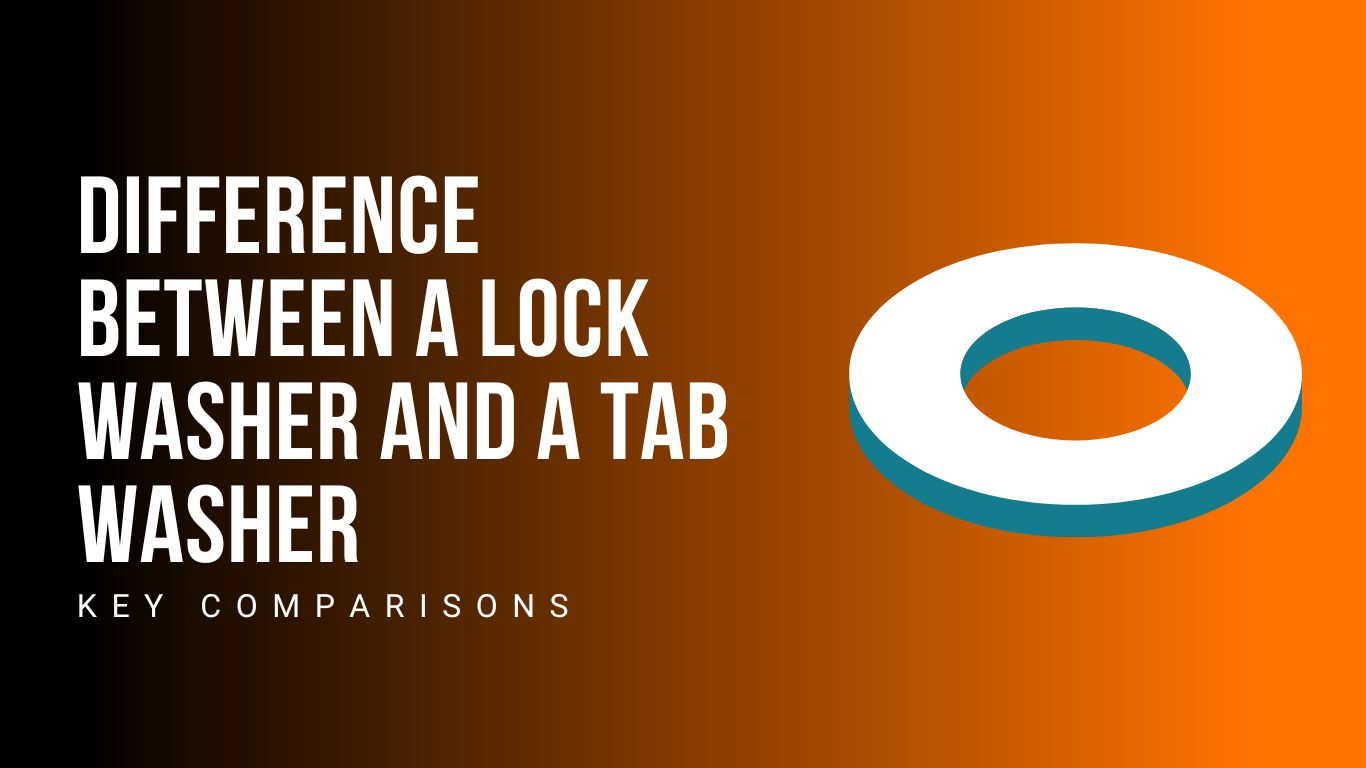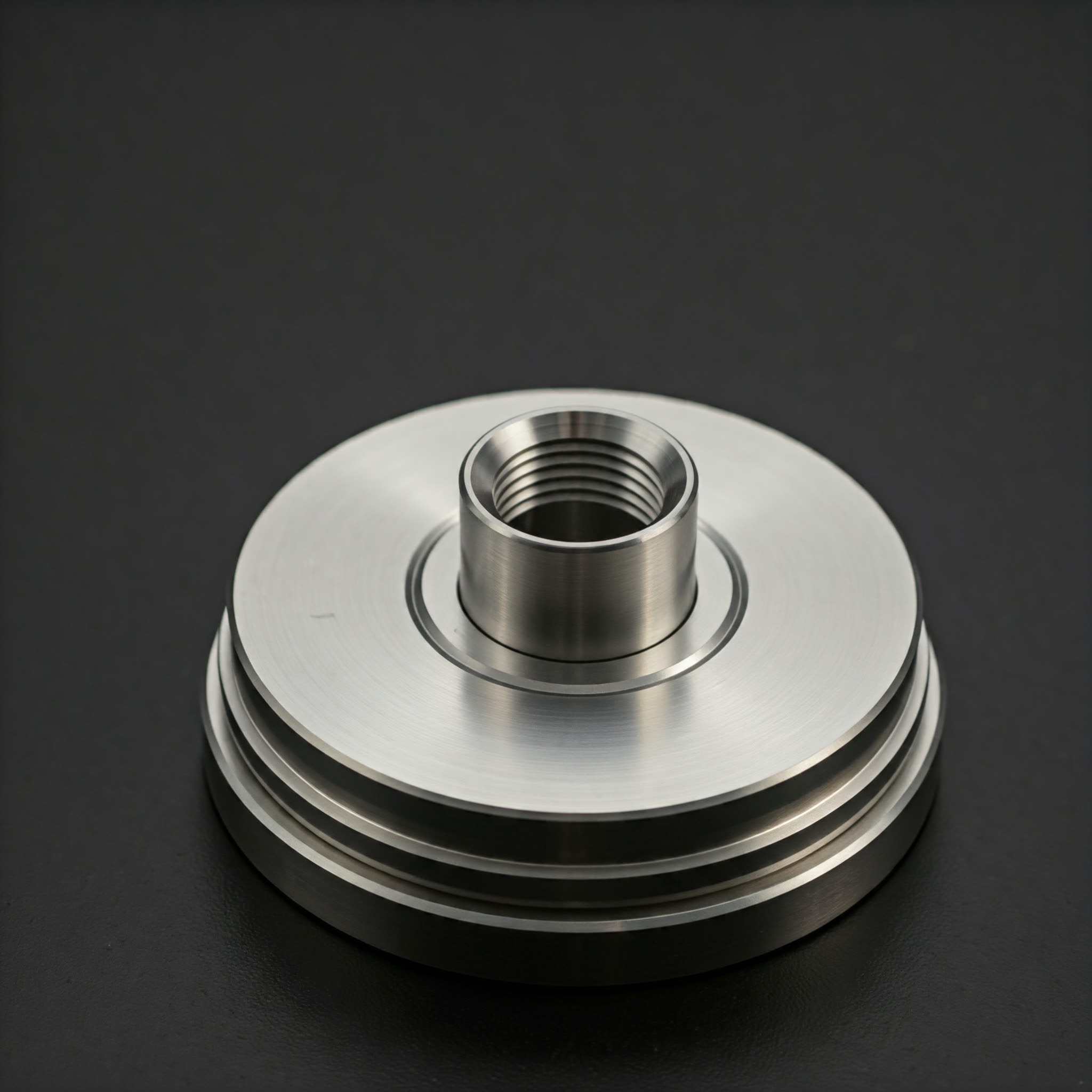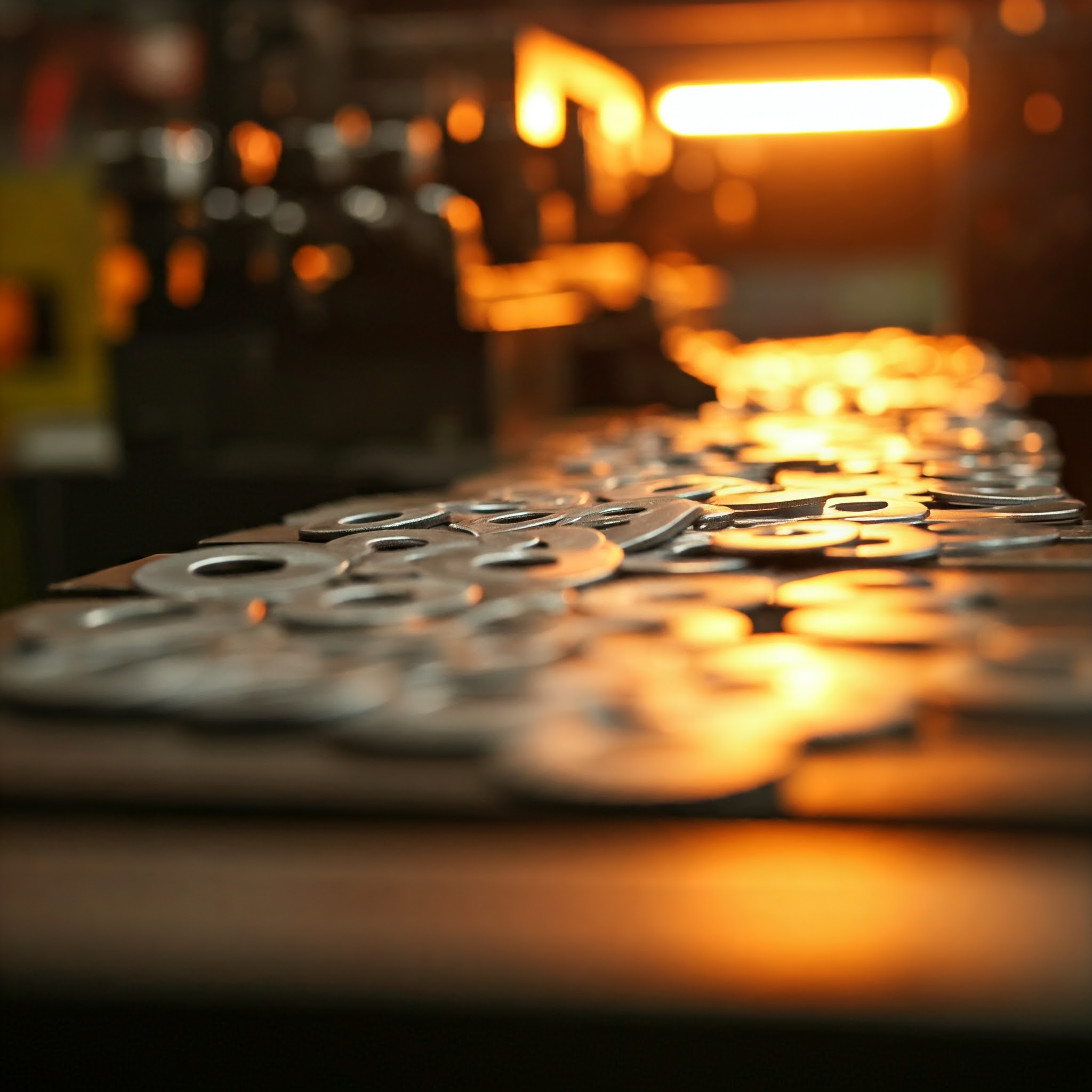Difference Between a Lock Washer and a Tab Washer: Key Comparisons

If you’ve ever worked with fasteners, bolts, or machinery, you’ve likely encountered washers. They play a crucial role in securing components and preventing loosening due to vibrations. Among the many types of washers, lock washers and untered washers. They play a crucial role in securing components and preventing loosening due to vibrations. Among the many types of washers, tab washers are often discussed. But what's the real difference between a lock washer and a tab washers? Which one should you use for your next project?
In this guide, I’ll walk you through the key differences between these two washers, helping you understand their unique features, applications, and when to choose one over the other.
Table of Contents:
- Introduction
- What is a Lock Washer?
- What is a Tab Washer?
- Key Differences Between Lock Washers and Tab Washers
- Advantages and Disadvantages of Lock Washers
- Advantages and Disadvantages of Tab Washers
- When to Use a Lock Washer
- When to Use a Tab Washer
- Choosing the Right Washer for Your Project
- Conclusion
What is a Lock Washer?
A lock washer is a type of washer designed to prevent fasteners (like bolts and nuts) from loosening under vibration or pressure. It’s typically made from spring steel, although other materials, such as stainless steel, are also used. The washer features a helical or split design that exerts a spring-like force to resist rotation and maintain tension.
Lock washers come in a variety of shapes, including:
- Internal lock washers, where the prongs or teeth are positioned on the inside.
- External lock washers, where the teeth or prongs are on the outside.
How It Works
When a lock washer is placed under a bolt or nut, its spring tension holds the fastener in place. As the bolt or nut is tightened, the washer’s teeth dig into the surface of the material and the fastener, preventing them from loosening due to vibrations or torque. For heavy-duty applications, manufacturers often use shim washers or stainless steel shim plates for added durability.
What is a Tab Washer?
A tab washer is another type of washer used to secure fasteners. Unlike lock washers,tab washers have a flat design with a single tab that is bent over the fastener after installation. The tab locks the fastener in place, ensuring it doesn’t loosen.
Tab washers are commonly made from metals like steel, stainless steel, or brass, and they are often used in combination with other washers to enhance their locking effect.
How It Works
When installed, the tab washer’s tab is bent over a flat surface, typically a bolt or nut, which prevents the fastener from turning. The tab provides a mechanical lock that keeps the fastener in place, offering excellent resistance to loosening, especially in high-torque applications. For heavy-duty applications, shim sheet metal can also be used in combination with tab washers for extra support and alignment.
Key Differences Between Lock Washers and Tab Washers
Let’s break down the main distinctions between lock washers and tab washers to help you understand their functionality, design, and best uses.
Functionality
- Lock Washer: Designed to apply constant tension to prevent loosening from vibrations. It works by using its spring action to resist rotational movement, offering a dynamic locking effect.
- Tab Washer: Designed to physically lock a fastener in place by bending a tab over the fastener. It doesn’t rely on tension but instead creates a mechanical lock to keep components secure.
Design and Structure
- Lock Washer: Typically a round washer with internal or external teeth. Its unique design allows it to apply pressure when a bolt or nut is tightened, ensuring a secure fit.
- Tab Washer: A flat washer with a tab that extends from one side. The tab is bent over the fastener after installation to prevent loosening.
Applications
- Lock Washer: Often used in a wide range of industries, including automotive, machinery, and construction, where vibrations or high torque may cause fasteners to loosen. External lock washers are commonly used for larger fasteners, while internal lock washers are used for smaller bolts or screws.
- Tab Washer: Typically used in applications where a more permanent locking solution is required, such as securing foundation bolts, machinery bolts, or high-torque fasteners. Tab washers are also commonly used in combination with other washers for added security.

Advantages and Disadvantages of Lock Washers
Advantages of Lock Washers
- Versatility: Lock washers can be used with a wide variety of fasteners, making them a great all-purpose option for many applications.
- Vibration Resistance: Lock washers excel in environments with frequent vibrations, providing an effective solution for preventing loosening.
- Ease of Use: Installation is straightforward—simply place the washer under the fastener, tighten, and it works its magic.
Disadvantages of Lock Washers
- Potential for Surface Damage: The teeth on lock washers can damage the surface of the material they’re pressed against, especially when over-tightened.
- Not Ideal for Permanent Fixes: In some cases, lock washers are not suitable for applications requiring long-term or permanent fastening solutions.
Advantages and Disadvantages of Tab Washers
Advantages of Tab Washers
- High Torque Resistance: Tab washers are ideal for high-torque applications where fasteners need to remain securely in place.
- Permanent Locking: Once the tab is bent over the fastener, it provides a permanent solution that prevents loosening.
- Low Maintenance: Unlike lock washers, tab washers don’t require constant re-tightening, making them ideal for hard-to-reach areas.
Disadvantages of Tab Washers
- Limited Use: Tab washers are more specialized than lock washers and are generally used in fewer applications.
- Installation Complexity: The tab must be bent over the fastener after installation, which can be more time-consuming than using a lock washer.

When to Use a Lock Washer
You should use a lock washers when:
- You need a simple, cost-effective solution to prevent loosening due to vibrations or torque.
- The fasteners will need occasional adjustments or re-tightening.
- You’re working with smaller fasteners or bolts in less demanding applications, such as light machinery, automotive parts, or electrical components.
When to Use a Tab Washer
You should opt for a tab washer when:
- You require a more secure, permanent locking solution that won’t need to be re-tightened.
- Working with large or high-torque fasteners, such as in foundation bolts, machinery applications, or heavy-duty construction.
- You need a washer that can handle extreme conditions where regular maintenance is difficult, such as in automotive or industrial machinery.
Choosing the Right Washer for Your Project
When deciding between a lock washers and a tab washers, consider the following factors:
- Vibration Levels: If your project involves machinery or equipment with frequent vibrations, lock washers are likely the best option.
- Torque Requirements: For applications that require high torque, a tab washer provides a more secure locking solution.
- Long-Term Security: If you need a more permanent, tamper-resistant solution, choose a tab washers.
- Maintenance Considerations: For easy, low-maintenance projects, lock washers may be the better choice, as they don’t require bending or permanent locking.

Conclusion
Understanding the difference between a lock Washer and a tab washer is crucial for ensuring you choose the right fastener solution for your project. Both washers have distinct advantages depending on your specific needs, whether it’s resistance to vibration, permanent locking, or handling high torque.
As you can see, lock washers provide a versatile, cost-effective solution for most standard applications, while tab washers are ideal for high-torque, permanent fastening needs. By considering your project's requirements, you can confidently choose the right washer to ensure secure and lasting results.
About Sachin Shim
Our range of shims includes metal, machine, industrial, precision, adjustable, machinery, engineering, custom, and alignment shims. These shims are designed for various applications, such as machinery alignment, fine adjustments in industrial-grade machines, engineering projects requiring steel shims, heavy-duty machinery requiring versatile metal shims, aerospace applications demanding precision stainless steel shims, automotive use requiring adjustable aluminum shims, precision engineering projects using high-quality brass shims, construction applications requiring durable plastic shims, specialized machinery needing customized shim solutions, and manufacturing processes requiring fine-tuning shims for precise alignment and accurate machine setup and leveling.
Author
Meet Seema, our expert author in industrial materials with a deep understanding of Washer. With years of experience, Seema brings valuable insights and expertise to this guide, making them a trusted source for all things related to Washer. Join us as we delve into the art of Washer with Seema leading the way.
List Other similar blogs







